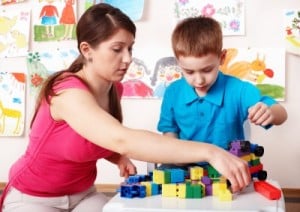
“Their short-term efficacy in treating the core symptoms of ADHD – the symptoms of hyperactivity and attention and impulsivity – that has been established,” said Helga Zoega, the lead author on the new study from the Mount Sinai School of Medicine in New York. “With regard to more functional outcomes, for example academic performance or progress, there’s not as much evidence there as to whether these drugs really help the kids academically in the long term.”
For their study, Zoega and her colleagues from both the U.S. and Iceland compared prescription drug records and test scores from Icelandic elementary and middle school students for the years 2003 to 2008. Of the more than 13,000 children registered in the national school system, just a little over 1,000 were actually treated with medications sometime between grades 4 and grades 7.
Overall, researchers found that children who took medication for ADHD during that time period were more likely to show a drop in standardized test scores over the years. This was especially true for children who did not start medications until later on in their primary grade school years.
For example, in math exams, children who started stimulant drugs within one year of their fourth grade standardized tests had a decline of their test scores of less than one percent between their fourth and seventh grade years. However, children that did not start medications until the sixth or seventh grade exhibited a nine percent drop in their test scores over the same period of time.
The Centers for Disease Control and Prevention say that parent reports suggest that somewhere around one out of 10 children and teens have undiagnosed ADHD and one-third of those diagnosed are not taking medications for their symptoms. Those that aren’t receiving treatment may struggle academically and that could hurt long-term school performance.
But ADHD medications do have side effects, including trouble sleeping, loss of appetite, weight loss and stomach aches. Some children may be able to get by without medication, Zoega said. So the goal shouldn’t be to put every child on medication; just those that need it.
“Not all kids need medication,” Zoega said. “It’s important to think about whether alternative treatment options, whether earlier intervention with those could have a beneficial effect.”
“There are obvious benefits of getting started sooner rather than later,” said J. Russell Ramsay, who studies ADHD at the University of Pennsylvania’s Perelman School of Medicine in Philadelphia. “Especially if students are struggling later on, this study would suggest it may be at least very useful to explore and consider certain treatment options.”
Ramsay says that trouble at school is one of the most common reasons that parents seek help for their ADHD child. He added that families can talk to their family physician or a mental health professional about the pros and cons of starting medication treatments. But he also says that medication may not be needed for every child.
“Medications are probably still the reflex response, with a good evidence base,” he said. “But there are other things that can be added in later or concurrently that can also provide support to the child, to the family and to the educators.”
Related Articles:
- Cereal Marketing to Kids Still Focusing on the Sweeter Side
- Single Mom Stress Reduced by Spending Time with Children
- Sharing Makes Toddlers Happy
SOURCE
Image credit: poznyakov / 123RF Stock Photo







I have a child with ADHD. I tried the Ritalin with little to no success. I found the drug made my child lethargic and once it wore off she would either crash or become even more hyper-active. Believe me, I tried it for a period of time to see if it would build up in her system and alleviate not only the behavior but the side effects. It did not. After doing much research I found two programs that are working for my daughter and my family. I use Play Attention and ADHD Nanny. Play Attention is a program that builds behavioral shaping and she loves to play it which makes it that much more easy on me. ADHD Nanny (she is young), gives me and my family tools for everyday structure to assist her. Recently divorced I found it difficult to keep her structured because of going back and forth from two homes. Now, each household uses it and it is working for her and the family.
jnystrom